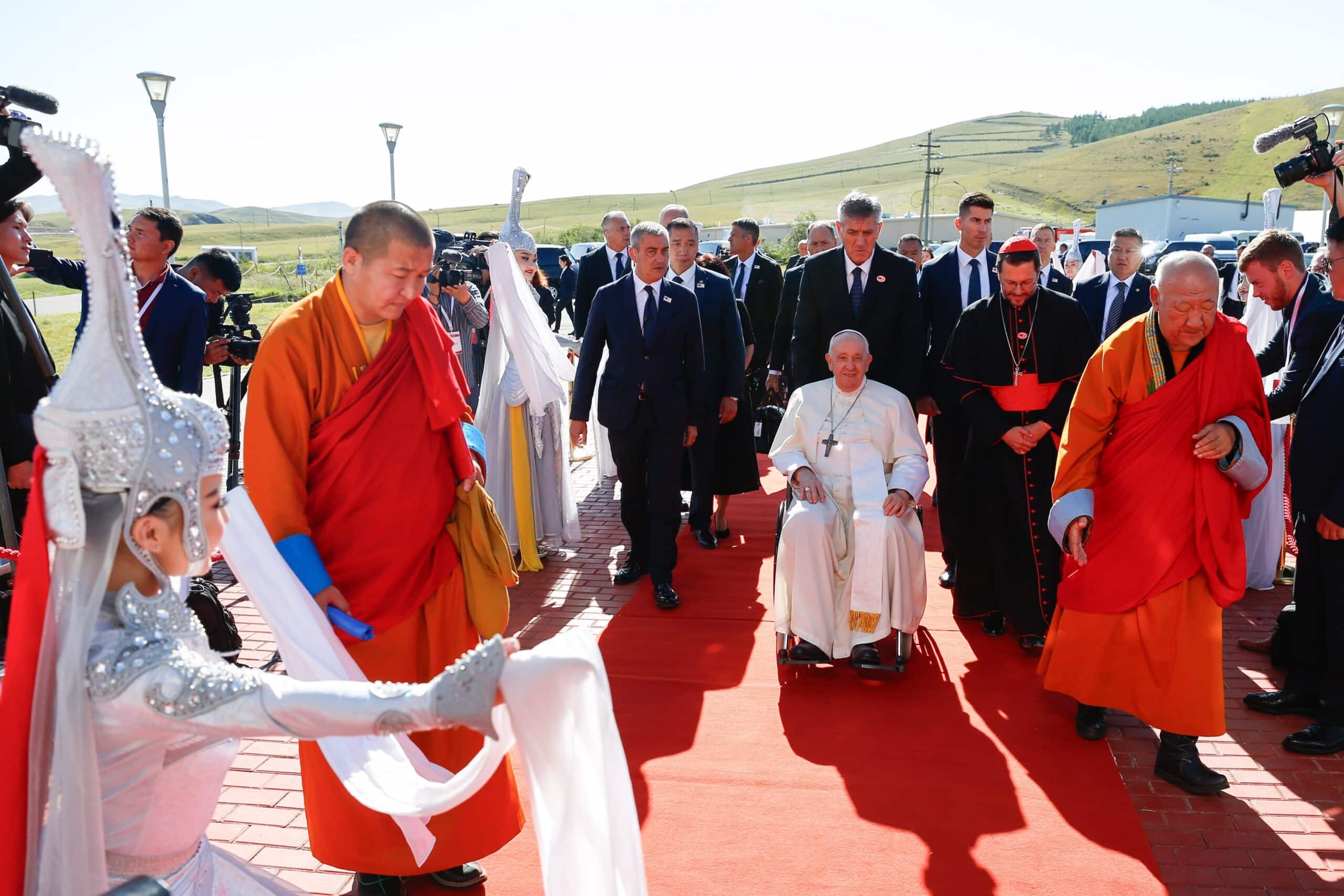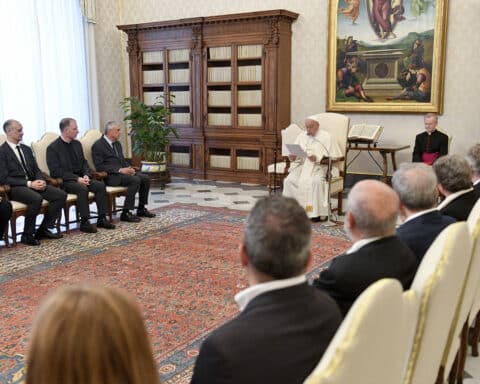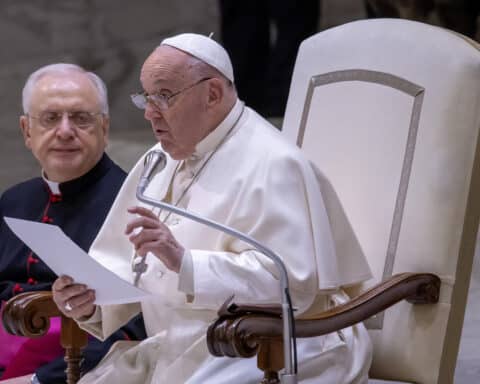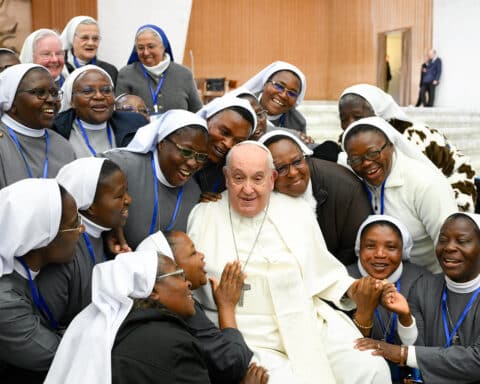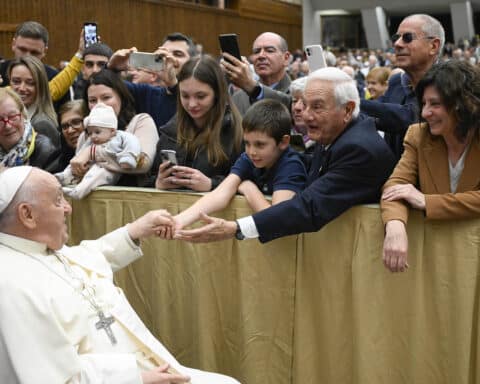ULAANBAATAR, Mongolia (CNS) — The 86-year-old Pope Francis and other religious elders gathered in a yurt-shaped theater to speak of the earth and the divine, harmony and beauty, peace and the human family.
In Mongolia, where all religion was brutally repressed for seven decades under communist rule, Pope Francis paid tribute Sept. 3 especially to Mongolia’s Buddhists, the largest religious group in the country; beginning in the late 1930s, thousands of Buddhist monks were condemned to death and hundreds of Buddhist temples were destroyed.
The pope prayed that the memory of past suffering would give all Mongolians “the strength needed to transform dark wounds into sources of light, senseless violence into the wisdom of life (and) devastating evil into constructive goodness.”
Leaders of the Buddhist, shamanist, Muslim, Evangelical, Seventh-day Adventist, Latter-day Saints, Hindu, Shinto, Baha’i and Russian Orthodox communities in Mongolia also spoke at the event in Ulaanbaatar’s Hun Theatre.
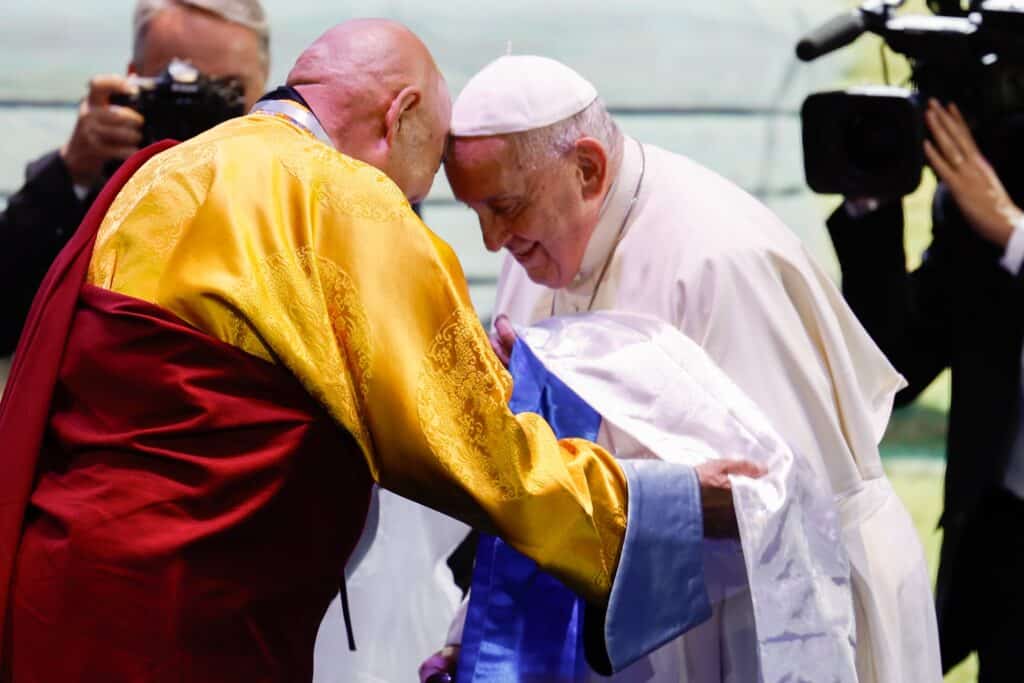
Harmony, openness and respect
They, like the pope, continually used the word “harmony.”
“Harmony is that special relationship born of the creative interplay of differing realties, without imposition or amalgamation, but with complete respect for their differences, in view of a serene life in common,” Pope Francis said. “I ask myself: Who, more than believers, is called to work for harmony among all?”
Close-mindedness and fundamentalism “destroy fraternity, fuel tensions and compromise peace,” he said, but beauty is born of harmony, which “flourishes through kindness, listening and humility.”
Harmony does not come from pretending there are no differences or from apologizing for one’s deeply held beliefs, he said. “The church offers the treasure she has received to every person and culture, in a spirit of openness and in respectful consideration of what the other religious traditions have to offer.”
“Dialogue, in fact, is not antithetical to proclamation,” the pope insisted. “It does not gloss over differences, but helps us to understand them, to preserve them in their distinctiveness and to discuss them openly for the sake of mutual enrichment.”
“We share a common origin that confers equal dignity on everyone,” he said, “and a shared path that we can only travel alongside one another as we dwell under the one sky that surrounds and illumines us.”
Faith in one creator of the whole human family means that there must never be a mixing of “religious beliefs and violence, of holiness and oppression, of religious traditions and sectarianism,” the pope said.
Fraternal values and peace in Ukraine
Gabju Demberel Choijamts, abbot of the Tibetan Buddhists’ Gandantegchinlen Monastery in Ulaanbaatar, told the gathering that while the different religions have different philosophies and world views, they promote values essential for human welfare, “important inner values such as loving kindness, compassion, morals, tolerance, forgiveness and karma.”
While Russia’s war on Ukraine was never far from people’s attention during the pope’s visit to Mongolia, which borders both Russia and China, Father Anthony Gusev, rector of the Russian Orthodox Holy Trinity Church in Ulaanbaatar, did not mention the war. Instead, he gave a history of the Russian Orthodox presence in Mongolia since the 12th century.
Yair Jacob Porat, representing Mongolia’s Jewish community, spoke about the coming celebration of Rosh Hashanah, which will begin at sunset Sept. 15.
The celebration “invites individuals of all backgrounds to contemplate their actions, seek forgiveness and strive for personal and collective improvement in the year ahead,” he said. “The world and humanity need that with all the challenges we are facing worldwide.”
Pope Francis told the leaders that the fact they all decided to gather in the ger and talk is already a sign to the world.
“If the leaders of nations were to choose the path of encounter and dialogue with others, it would be a decisive contribution to ending the conflicts continuing to afflict so many of the world’s peoples,” he said.

